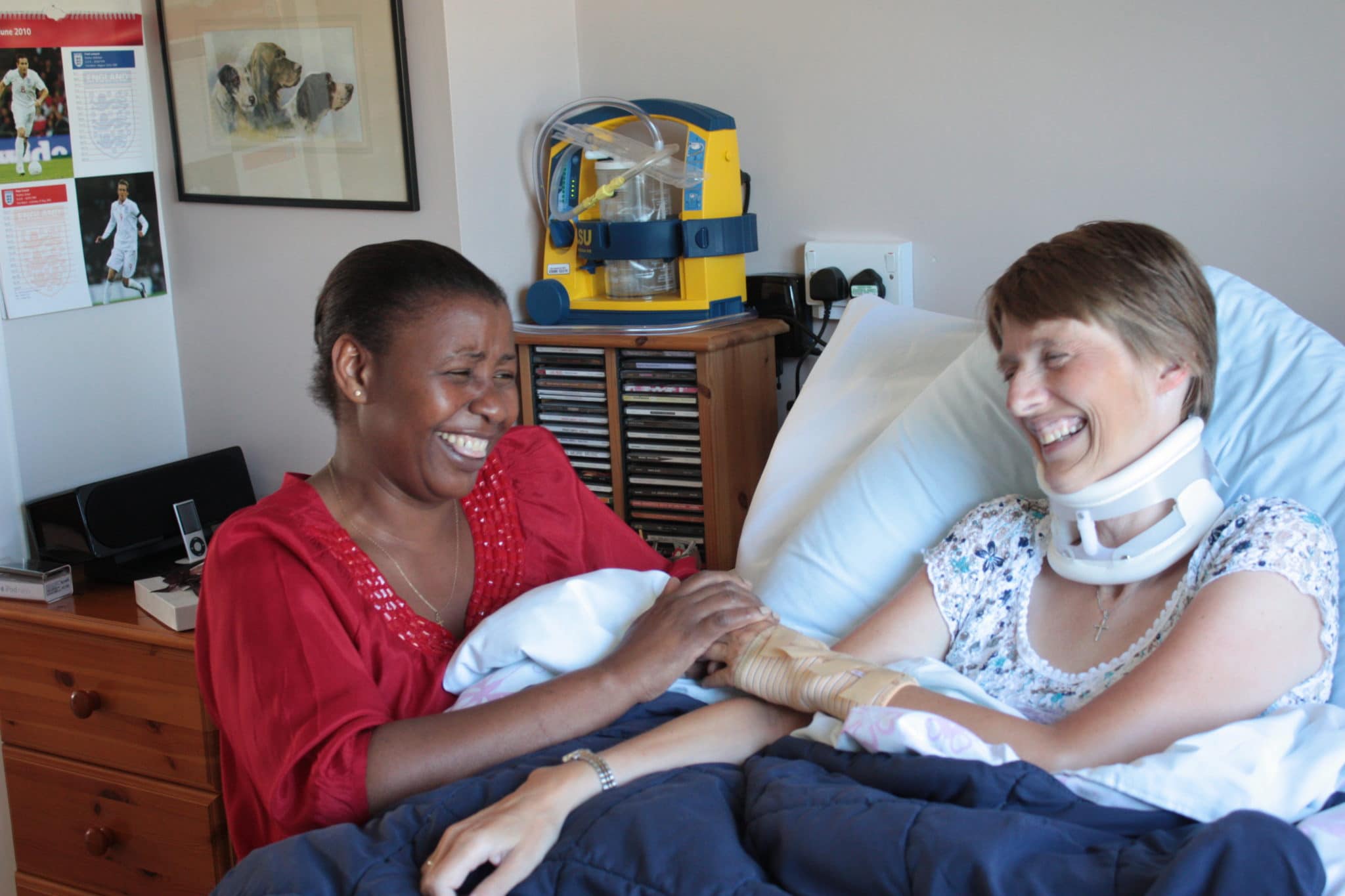The Social Care Institute for Excellence (SCIE) has found that most older people enjoy being in their home surroundings and fear the loss of their independence when considering care.
For many, leaving home and going to a new and unfamiliar setting can be a deeply unsettling experience which can result in significant shock, in turn impacting their wellbeing.
The risk of losing independence in a care home can also mean that you are no longer able to engage in your interests and hobbies as you once enjoyed, soon affecting your mental wellbeing and physical health. However, through staying in your own home, you can dictate your own schedule while still receiving the care you need.
An alternative to care homes

Although many individuals see going into a care home as an inevitable route of passage as they get older, it is definitely not the case. If you are experiencing some difficulties in completing your day-to-day tasks, moving out of your home is not the only option out there.
Through receiving live-in care, you can be safe in the knowledge that your carer will be able to adapt their support in order to suit your individual interests. By spending extended periods of time together they will be able to really get to know you and will use this knowledge to deliver person-centred assistance in the areas you need.
Often, in care homes, activities can only be carried out in large group settings to minimise the cost and manpower needed. Because of this, personal hobbies are not taken into account and one-to-one attention is not feasible, leaving many people feeling lonely, bored or even ignored.
Skills for Care, the strategic body for the adult social care workforce in England, has outlined a few core principles to supporting good mental health and wellbeing. One of these is to ‘deliver flexible and personalised care that reflects the individual’s identity and preferences.’
Health care at home
A dedicated care plan means that your carer can spend more time considering your health concerns and needs. The flexibility to recover from an illness at your own pace without having to worry about being rushed within a hospital setting or looked over in a care home can be incredibly important in your life and health wellbeing.
Bob starts dancing again
After being diagnosed with vascular dementia, Bob found he had great difficulty with his short-term memory. Also, as his age and condition progressed, his mobility was becoming an issue – he could only cover short distances and could be very unsteady when doing so. Reluctant to leave the place where he had made many memories and was surrounded by comfort, Bob decided to try out live in care agencies.
As this was his first experience of the care sector, Bob needed his carer to understand his desire to complete tasks on his own. When possible, he wanted to mobilise independently but understood that he would sometimes need support.
Since he was outgoing and enjoyed meeting new people, one of Bob’s main aims was to integrate himself into his local community. He wanted to gain social interaction and get to know his neighbours. Bob still wanted to be able to engage in his interests so his carer would need to facilitate these whenever possible.
These aims all led to Bob being matched with Eleni, a live-in carer who had a focus on maintaining independence but also had similar interests which instantly gave them something to bond over.
After spending some time with Bob and seeing that he was unsteady on his feet but still wanted to maintain his mobility, Eleni started to support him in carrying out daily leg exercises to strengthen his lower limbs and help him to regain his balance.
When Bob felt himself becoming stronger and more confident with his mobility, he wanted to try to push himself further. One day, he expressed his wishes to dance with Eleni. She eagerly took him up on this and so, after assessing his ability and ensuring that they weren’t any risks, they danced together in his living room.
Bob has since taught Eleni to waltz and they often dance together, which has greatly improved his strength and balance. He has also regained his own sense of independence through being able to engage in such a special activity. Eleni’s own interest in dance means that she enjoys this pastime just as much as Bob and also looks forward to this daily activity.
Around the clock companionship
Good mental wellbeing often relies on having someone to confide your worries in, or just simply to talk to about your day. This feeling of companionship can be instrumental in your life and is something that can be gained through live-in care, as you will have someone there for you throughout the day and night.
